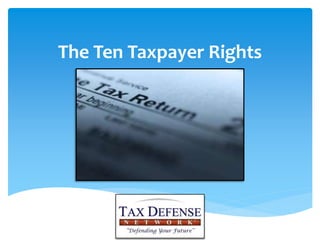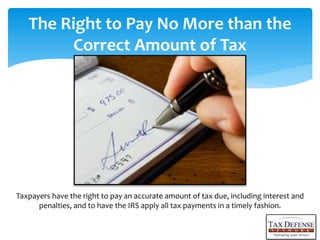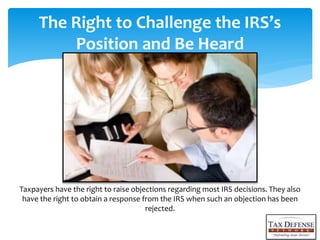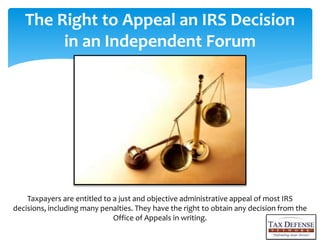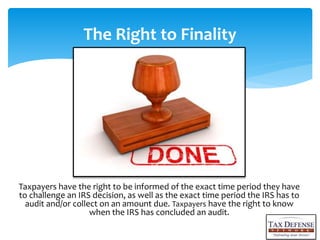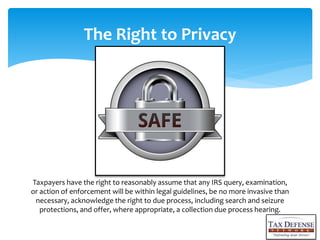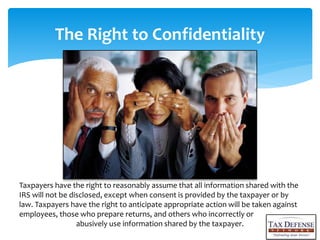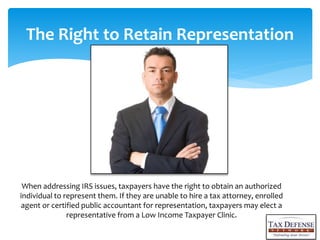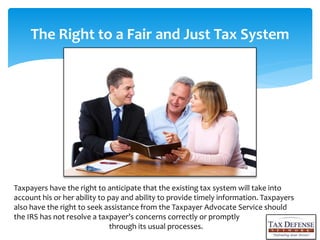Ten Taxpayer Rights You must know
- 1. The Ten Taxpayer Rights
- 2. The Right to Be Informed Taxpayers have the right to receive information on how to comply with the tax laws. If the IRS does not provide them with enough information, they can request the IRS to inform them about how to remain or regain compliance.
- 3. The Right to Quality Service Taxpayers have the right to receive courteous and professional help from the IRS at all times. If they do not understand a law or an IRS policy, then the IRS must provide explanation or direct them towards help to assist them in clearly understanding the law.
- 4. The Right to Pay No More than the Correct Amount of Tax Taxpayers have the right to pay an accurate amount of tax due, including interest and penalties, and to have the IRS apply all tax payments in a timely fashion.
- 5. The Right to Challenge the IRS¡¯s Position and Be Heard Taxpayers have the right to raise objections regarding most IRS decisions. They also have the right to obtain a response from the IRS when such an objection has been rejected.
- 6. The Right to Appeal an IRS Decision in an Independent Forum Taxpayers are entitled to a just and objective administrative appeal of most IRS decisions, including many penalties. They have the right to obtain any decision from the Office of Appeals in writing.
- 7. Taxpayers have the right to be informed of the exact time period they have to challenge an IRS decision, as well as the exact time period the IRS has to audit and/or collect on an amount due. Taxpayers have the right to know when the IRS has concluded an audit. The Right to Finality
- 8. Taxpayers have the right to reasonably assume that any IRS query, examination, or action of enforcement will be within legal guidelines, be no more invasive than necessary, acknowledge the right to due process, including search and seizure protections, and offer, where appropriate, a collection due process hearing. The Right to Privacy
- 9. The Right to Confidentiality Taxpayers have the right to reasonably assume that all information shared with the IRS will not be disclosed, except when consent is provided by the taxpayer or by law. Taxpayers have the right to anticipate appropriate action will be taken against employees, those who prepare returns, and others who incorrectly or abusively use information shared by the taxpayer.
- 10. When addressing IRS issues, taxpayers have the right to obtain an authorized individual to represent them. If they are unable to hire a tax attorney, enrolled agent or certified public accountant for representation, taxpayers may elect a representative from a Low Income Taxpayer Clinic. The Right to Retain Representation
- 11. The Right to a Fair and Just Tax System Taxpayers have the right to anticipate that the existing tax system will take into account his or her ability to pay and ability to provide timely information. Taxpayers also have the right to seek assistance from the Taxpayer Advocate Service should the IRS has not resolve a taxpayer¡¯s concerns correctly or promptly through its usual processes.
- 12. These were some facts about IRS. More are waiting, so keep reading and stay connected.

